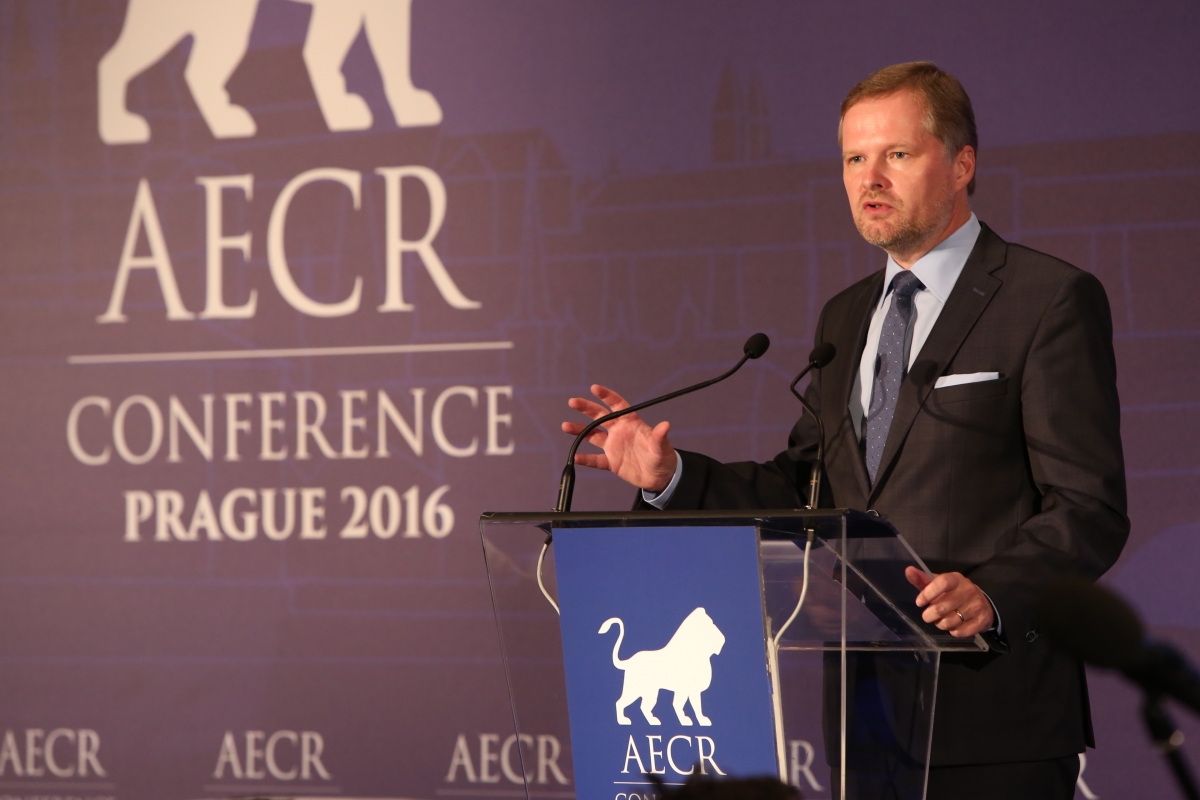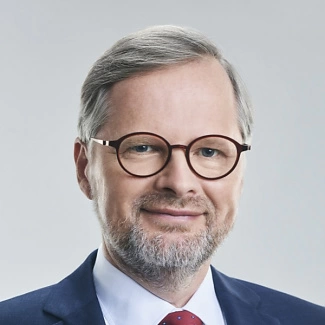Projev na konferenci AECR

Ladies and gentlemen, dear guests,
it is my honour on behalf of the Civic Democratic Party to host the Alliance of European Conservatives and Reformists conference here, in Prague, at time, which – I believe – will prove to be most important for the future character of the European integration. Today, in Prague, I could say, we came to full circle.
As early as in 2003, Conservative Party, Polish Law and Justice Party and ODS at their first joint meeting, formulated principles of European integration that were to be a viable alternative to the embedded and prevailing notion of federalist, ever-closer union. A model of European integration that is based on free, voluntary and flexible form of cooperation between European nations.
In 2009, just after the European elections, we were back in Prague. Within the growing family of like-minded parties and with the perspective of a new parliamentary group that would help us to advance our concern institutionally and politically. On that occasion we concluded the Prague Declaration, which has become a valid and in many ways visionary political concept. Seven years ago European Conservatives and Reformists put their political and legitimate weight behind such principles as:
- Sovereign integrity of the nation state, opposition to EU federalism and a renewed respect for true subsidiarity
- Effectively controlled immigration and no abuse of asylum procedures
- Respect and equitable treatment for all EU countries, new and old, large and small
Seven years ago we were labelled as anti-European, Eurosceptic or even nationalist. Today’s on-going debate on the future dynamic of European integration focuses precisely on these issues. I could have been tempted to say that the history proved us right. However, current state of matters in the EU gives us little reasons to rejoice. Instead of Union of four freedoms, we have Union of four crises.
Firstly, an economic crisis is still simmering under the surface. This is because of the policy to save the current form of Eurozone – literarily at every cost. Despite unsustainable structural differences, the monetary union is artificially glued together by massive debt transfers in order to save the project of the EMU that should become the integration core in the future. Greece kept in Eurozone is simply the avatar of the dogma of ever-closer union, with monetary union as the core of future union political.
Secondly there has been the massive migration crisis. The biggest migration wave since the Second World War caught the EU incapable of any strategic response and the ability to protect the security and interest of its citizens. Let us not forget that the migration wave came at a time, when economic and political cohesion of the Union was severely damaged precisely as a result of the economic and financial crisis and rescue of the euro. What is more, the impact of migration crisis in individual countries is asymmetric and unevenly burdens their social, educational and national health systems. The North–South cleavage present in the Eurozone crisis is – as a result – being expended to West-East drift. The old member states would like the new ones to share the burden of their wrong migration and integration policies evenly, otherwise it may come to revision of EU structural and cohesion policies and the new member states could be cut short. Migration crisis therefore clearly showed that the European identity and solidarity derived from interest of non-existent European demos is just a pipe dream. In reaction to migration crisis, nation states resorted to their national interests and intergovernmental cooperation – for example take the police and humanitarian cooperation at the Balkan route. Not because the EU lack the policies and tools. Simply because it was quicker, cheaper and natural.
Needles to say, that uncontrolled migration also means a third crisis – the security crisis for Europe, namely in the form of terrorism. And naturally the East-West drift is being exploited by Russia and its hybrid threats.
Lastly, we have witnessed the decision of the United Kingdom to leave the EU. Brexit is an integration crisis as it was for the first time in history of the EU member decided to terminate its membership from the so far ever-growing and tight Union. Nevertheless, I see the Brexit crisis as the proverbial chance. It is not the beginning of the end of European cooperation. My believe is the Brexit will finally provide for genuine, deep and paradigmatic reform and change.
Brexit finally confirmed that the centralist, federalist paradigm of ever-closer union is unsustainable. It confirmed the words of Michael Oakeshott, who said “to try and do something which is inherently impossible is always a corrupting enterprise”.
The four crises I mentioned and the inability of the EU to solve them teach us one thing: If a state wants to succeed and defend its interests in the current versatile and unstable international and security environment, it needs means and conditions for flexible and brisk reaction. Reality shows that the straight jacket of ever-closer union does not allow for such conduct.
Today in Prague, within the family of Alliance of European Conservatives and Reformists we have again a unique chance to formulate principles of future European collaboration and its reform.
- EU that is based on free and flexible cooperation. Union that strengthens its internal market and contributes to the liberalization of the global free trade.
- Union in which countries enter open variable coalitions of policy cooperation without forcing others to join or, on the contrary, prohibiting them to do so.
- Union that can be a beacon of stability and democracy for its neighbourhood and thus provides chances for economic and democratic development around its borders.
Ladies and Gentlemen, we do not need to start our reform from a scratch. The family of European Conservatives and Reformists has made its name leave its significant mark in European policy. And I firmly believe in its prosperous future in reformed Union.
I wish the conference much success and I am sure our next future reformist reunion in Prague will prove our visions right.

